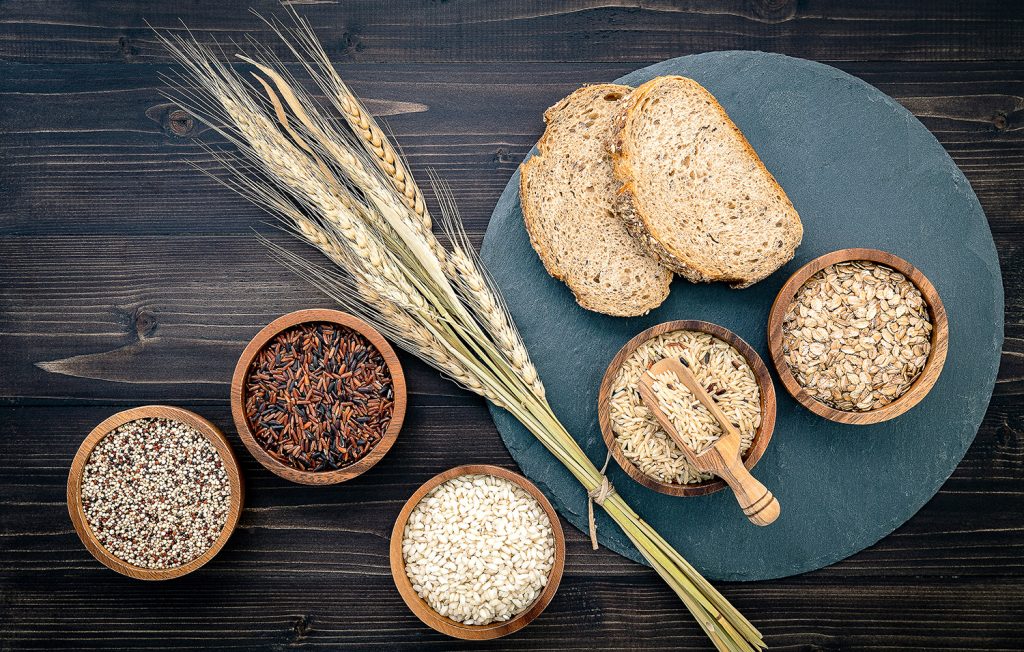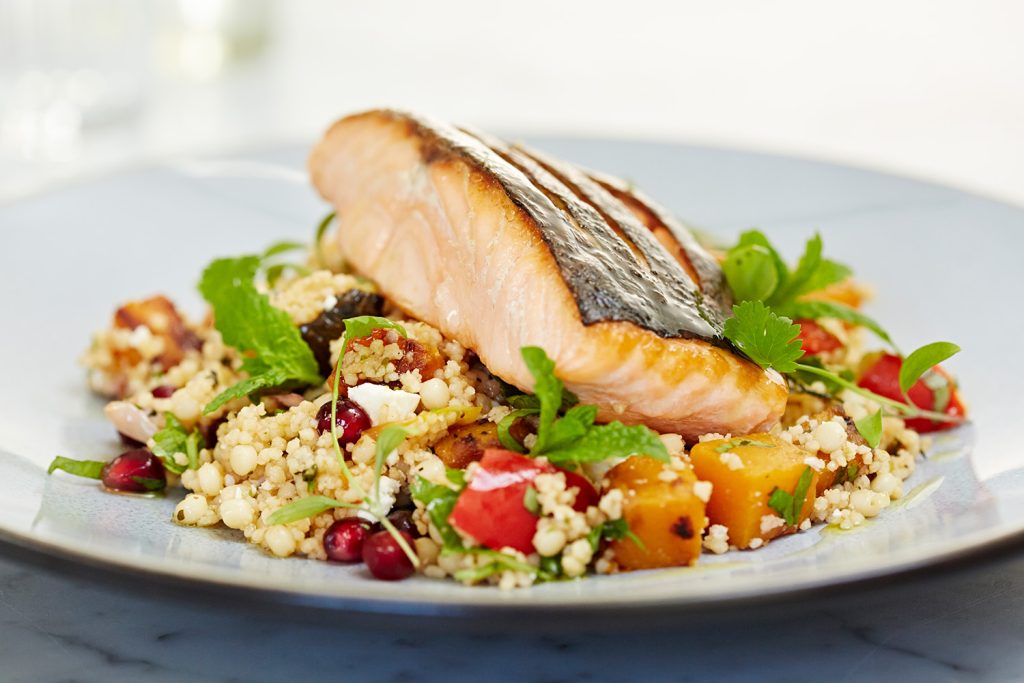
60 second summary:
- Our brain needs glucose (a sugar), so try to eat wholegrain carbohydrate foods every few hours
- Eating a varied diet helps give us vitamins and minerals to support brain function
- Maintaining a healthy gut might also boost mood
- Food brings us pleasure, so take time to enjoy eating
- Make sure you also get enough sleep, relaxation and time with friends to maintain your mood

Many articles and social media posts claim that certain foods can help lift your mood, from dark chocolate to chicken. Some studies even show that our gut bacteria may affect how we feel. In this article, we sort myth from fact and learn whether you really can eat yourself happy.
Brain food
Our brain needs sugar, in the form of glucose, to function. This doesn’t mean that you must eat sugary drinks, biscuits and sweets, though. We can convert most of the foods we eat, whether they are chicken, cheese, oats or peanuts, into glucose to fuel our brain. However, if we skip meals or eat a very low-carbohydrate diet, we can suffer from low blood sugar, which makes us feel ‘fuzzy-minded’ and affects our concentration.
To help keep us feeling sharp, eating a meal with some carbohydrates, ideally from wholegrains such as oats, wholemeal bread, pasta or rice every few hours is a good idea.

Vitamins and minerals
We need to eat a range of foods to provide us with micronutrients (like vitamins and minerals) to keep our bones and muscles strong, our immune system functioning, and to help us digest and release energy from food. Vitamins and minerals also support our brain, cognitive and psychological function.
For example, we need the following:
- Iron (found in red meat, green vegetables and pulses) for cognitive function
- Vitamin B6 from chicken, salmon, oats, peanuts and bananas to support psychological function
- A B-vitamin called pantothenic acid for mental performance
The gut-brain connection
Recent studies have linked the balance of friendly bacteria in the gut with our mood. Research is in its early stages, but it’s always a good idea to keep our gut healthy by eating plenty of high-fibre foods like wholegrains, fruit, vegetables, and pulses. Find out more here.
Healthy fats
You may have heard about omega-3 fats being heart-healthy, but what’s good for the heart may also be good for the brain. Some omega 3s, such as those found in oily fish like salmon, sardines and mackerel, have also been linked to brain function, so eating oily fish or omega 3-rich nuts like walnuts regularly is a good idea.

Comfort eating
So far, all the above benefits have been linked to key nutrients. But we shouldn’t forget that food also brings us emotional benefits. It’s a joy to eat delicious food, even if that food might be more indulgent. Really taking the time to enjoy your food, in moderation if it is high in fat, sugar and salt, is good for the soul. Food should bring us pleasure and not be a chore.
In conclusion, a nutritious diet can help to regulate your mood, improve concentration and boost mental performance, but it’s no substitute for a good night’s sleep, mindful relaxation and connection with friends.
Claire Baseley – Consultant Nutritionist






